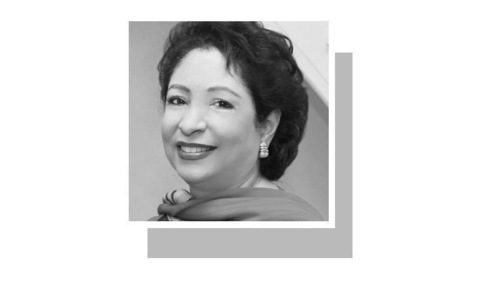ISLAMABAD: Pakistan on Sunday welcomed the Afghan Loya Jirga’s recommendation to release the remaining 400 hardcore Taliban prisoners — a development set to pave the way for the commencement of peace talks to end the 19-year-long war in the country.
“We hope that with implementation of this step relating to the prisoners’ release, as envisaged in the US-Taliban peace agreement, the intra-Afghan negotiations will commence at the earliest,” a statement issued by the Foreign Office said.
“In order to remove an obstacle, allow the start of the peace process and an end of bloodshed, the Loya Jirga approves the release of 400 Taliban,” the assembly said in a resolution.
President Ashraf Ghani had convened the assembly in Kabul, where some 3,200 Afghan community leaders and politicians gathered amid tight security and concerns about the Covid-19 pandemic to advise the government on whether the Taliban prisoners should be freed.
The Foreign Office said Pakistan had repeatedly emphasised that the Afghan leaders must seize this historic opportunity and work together constructively through intra-Afghan negotiations to secure a comprehensive, broad-based and inclusive political settlement in Afghanistan. The international community must also reinforce its support for the success of intra-Afghan talks for sustained and durable peace and stability in Afghanistan.
“For its part, Pakistan has consistently supported an Afghan-led and Afghan-owned peace and reconciliation process. Pakistan’s positive contribution to the process is internationally recognised. Pakistan reaffirms its support for a peaceful, stable, united, democratic, sovereign and prosperous Afghanistan, at peace with itself and with its neighbours,” the FO said.
On Feb 29, the United States and Taliban had signed a peace agreement in Doha, Qatar. The deal required the Afghan government to release 5,000 Taliban prisoners in a prisoner exchange for 1,000 government soldiers held by the Taliban.
However, the talks broke down when the Afghan government refused to release 400 hardcore Taliban allegedly involved in serious crimes, including murder, kidnapping and drug smuggling.
The Afghan government has already released over 4,600 Taliban prisoners, 400 less than the number decided during the US-Taliban talks. The release of prisoners was being considered as the last hurdle in the way of opening peace talks between the internationally-backed government and the Taliban under a peace deal.
Demand for ‘serious, lasting ceasefire’
According to an official list seen by AFP, many of the Taliban inmates are accused of serious offences, including many involved in attacks that killed scores of Afghans and foreigners, with more than 150 of them on death row.
The Loya Jirga urged the government to give assurances to the population that the released prisoners would be monitored and would not be allowed to return to the battlefield, adding that foreign fighters should be sent back to their respective countries. It also demanded a “serious, immediate and lasting ceasefire” in the country.
“The decision of the Loya Jirga has removed the last excuse and obstacles on the way to peace talks. We are on the verge of peace talks,” said Abdullah Abdullah, who is leading the government’s peace process and was appointed head of the Loya Jirga.
Security forces on Sunday said they had arrested 11 Islamic State militants who planned to attack the gathering.
US Secretary of State Mike Pompeo pushed for the release of the Taliban detainees, while recognising the decision would be “unpopular”.
The prisoners include 44 insurgents of particular concern to the United States and other countries for their role in “high-profile” attacks. Five are linked to the 2018 attack on the Intercontinental Hotel in Kabul that killed 40 people, including 14 foreigners.
A Taliban militant involved in the massive May 2017 truck bombing near the German Embassy in Kabul is also on the list, which includes a former Afghan army officer who killed five French troops in an insider attack.
The family of French aid worker Bettina Goislard, who was murdered in Afghanistan in 2003, said they would not accept the release of her killers, who are on the list. “Such a decision to free [them] made on the basis of horse-trading would be, to us, her family, inconceivable,” Bettina’s family said in a statement to AFP before the decision was announced.
On the first day of the gathering, lawmaker Belquis Roshan, a prominent women’s rights activist, protested against the release of the prisoners, unfurling a banner that read: “Redeeming Taliban is national treason.”
The decision has raised hopes for peace talks, however.
“Based on the information I have, the intra-Afghan talks would begin within two to three days after the release of 400 Taliban prisoners,” former president Hamid Karzai told the Loya Jirga.
Defence Secretary Mark Esper told Fox News on Saturday said the US would reduce the number of American troops in the country to less than 5,000 by the end of November, but added that it was “conditions-based”.
President Donald Trump, up for re-election in November, has said repeatedly that he wants to end America’s longest war, which began nearly 20 years ago when Washington ousted the Taliban following the 9/11 attacks.
Published in Dawn, August 10th, 2020














































